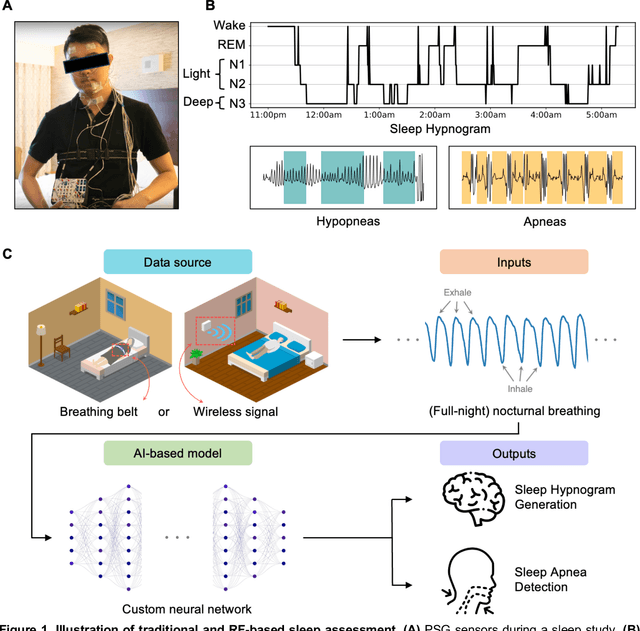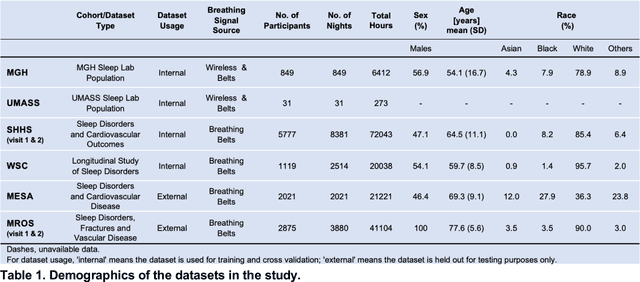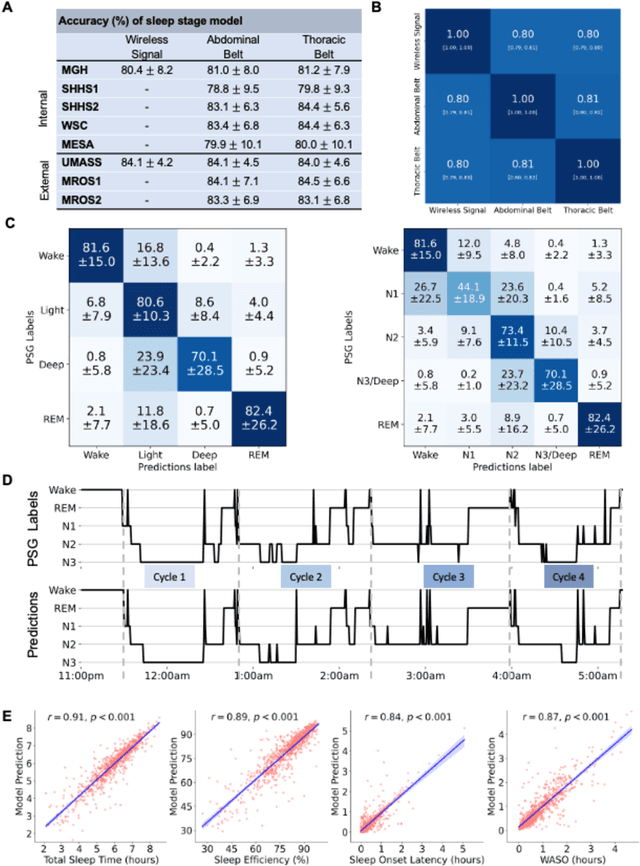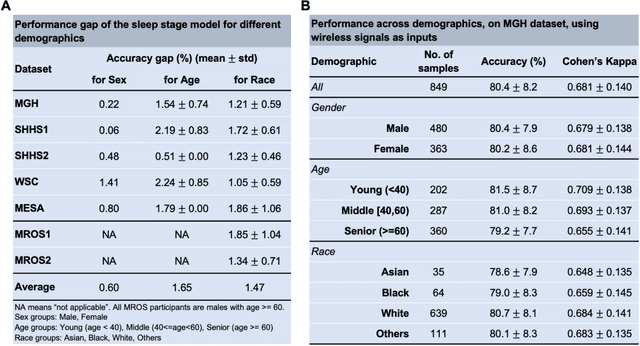Brandon Westover
From Hospital to Portables: A Universal ECG Foundation Model Built on 10+ Million Diverse Recordings
Oct 05, 2024Abstract:Artificial Intelligence (AI) has shown great promise in electrocardiogram (ECG) analysis and cardiovascular disease detection. However, developing a general AI-ECG model has been challenging due to inter-individual variability and the diversity of ECG diagnoses, limiting existing models to specific diagnostic tasks and datasets. Moreover, current AI-ECG models struggle to achieve comparable performance between single-lead and 12-lead ECGs, limiting the application of AI-ECG to portable and wearable ECG devices. To address these limitations, we introduce an ECG Foundation Model (ECGFounder), a general-purpose model that leverages real-world ECG annotations from cardiology experts to broaden the diagnostic capabilities of ECG analysis. ECGFounder is trained on over 10 million ECGs with 150 label categories from the Harvard-Emory ECG Database, enabling comprehensive cardiovascular disease diagnosis through ECG analysis. The model is designed to be both effective out-of-the-box and fine-tunable for downstream tasks, maximizing usability. More importantly, we extend its application to single-lead ECGs, enabling complex condition diagnoses and supporting various downstream tasks in mobile and remote monitoring scenarios. Experimental results demonstrate that ECGFounder achieves expert-level performance on internal validation sets for both 12-lead and single-lead ECGs, while also exhibiting strong classification performance and generalization across various diagnoses on external validation sets. When fine-tuned, ECGFounder outperforms baseline models in demographics detection, clinical event detection, and cross-modality cardiac rhythm diagnosis. The trained model and data will be publicly released upon publication through the bdsp.io. Our code is available at https://github.com/bdsp-core/ECGFounder.
Contactless Polysomnography: What Radio Waves Tell Us about Sleep
May 20, 2024



Abstract:The ability to assess sleep at home, capture sleep stages, and detect the occurrence of apnea (without on-body sensors) simply by analyzing the radio waves bouncing off people's bodies while they sleep is quite powerful. Such a capability would allow for longitudinal data collection in patients' homes, informing our understanding of sleep and its interaction with various diseases and their therapeutic responses, both in clinical trials and routine care. In this article, we develop an advanced machine learning algorithm for passively monitoring sleep and nocturnal breathing from radio waves reflected off people while asleep. Validation results in comparison with the gold standard (i.e., polysomnography) (n=849) demonstrate that the model captures the sleep hypnogram (with an accuracy of 81% for 30-second epochs categorized into Wake, Light Sleep, Deep Sleep, or REM), detects sleep apnea (AUROC = 0.88), and measures the patient's Apnea-Hypopnea Index (ICC=0.95; 95% CI = [0.93, 0.97]). Notably, the model exhibits equitable performance across race, sex, and age. Moreover, the model uncovers informative interactions between sleep stages and a range of diseases including neurological, psychiatric, cardiovascular, and immunological disorders. These findings not only hold promise for clinical practice and interventional trials but also underscore the significance of sleep as a fundamental component in understanding and managing various diseases.
 Add to Chrome
Add to Chrome Add to Firefox
Add to Firefox Add to Edge
Add to Edge